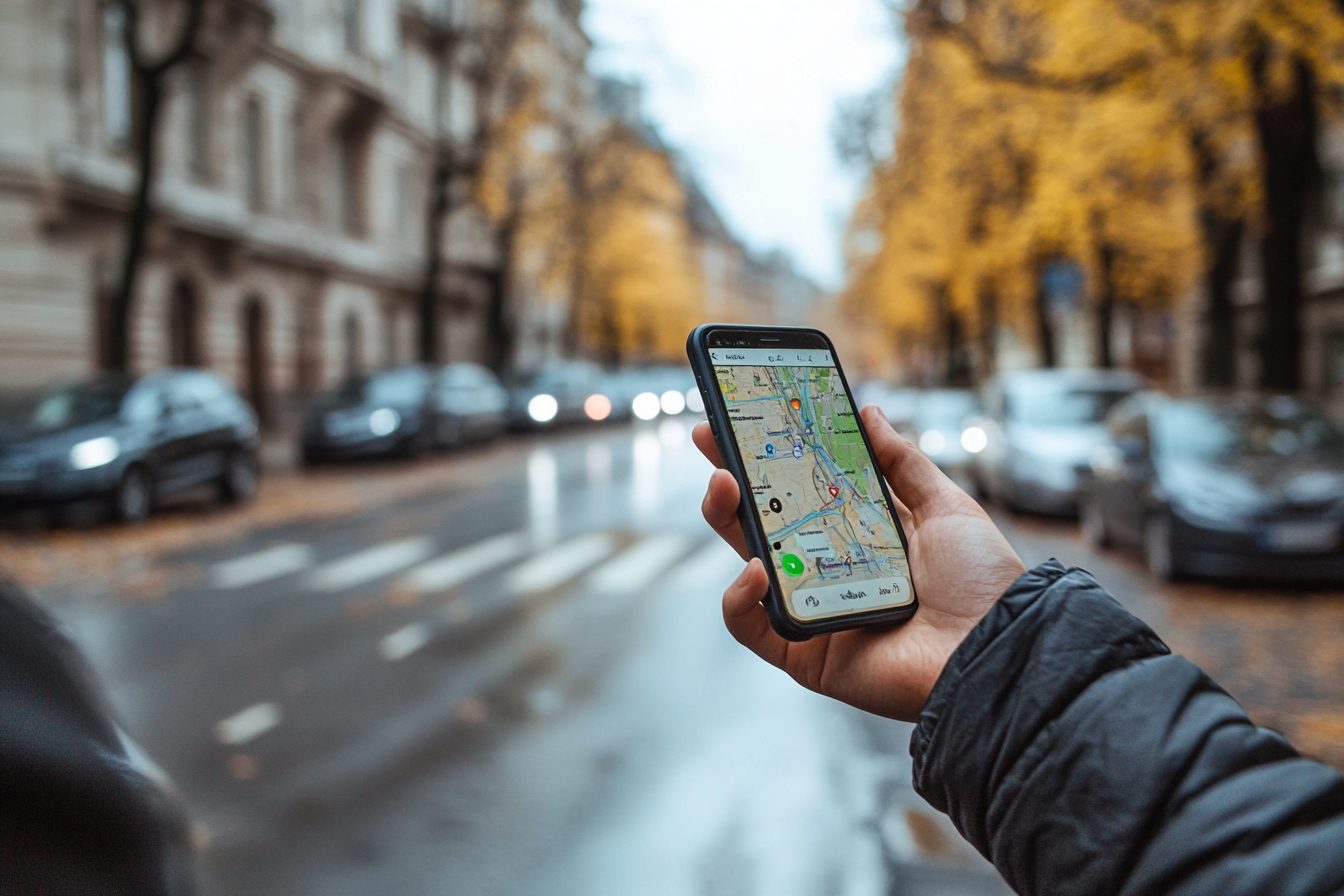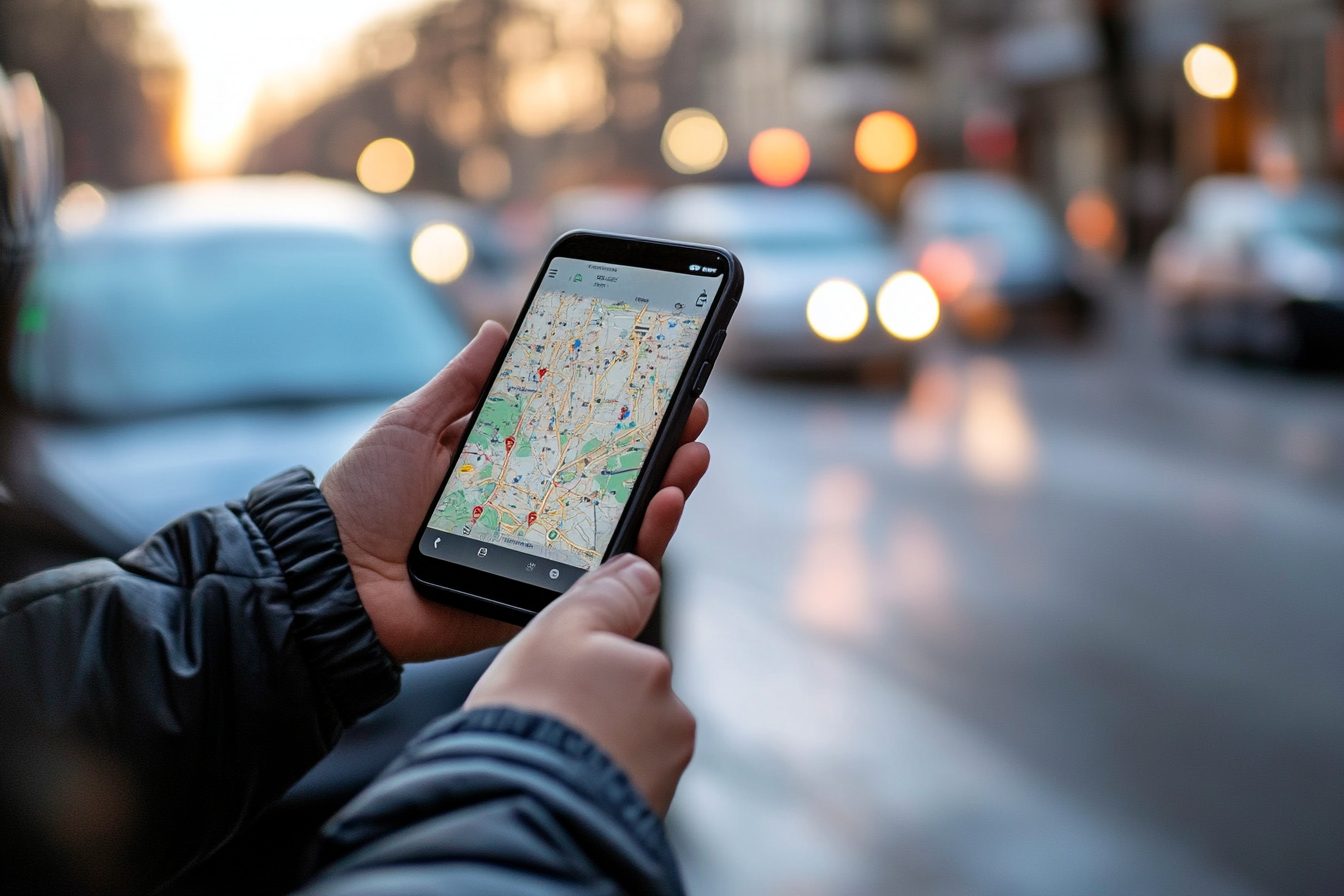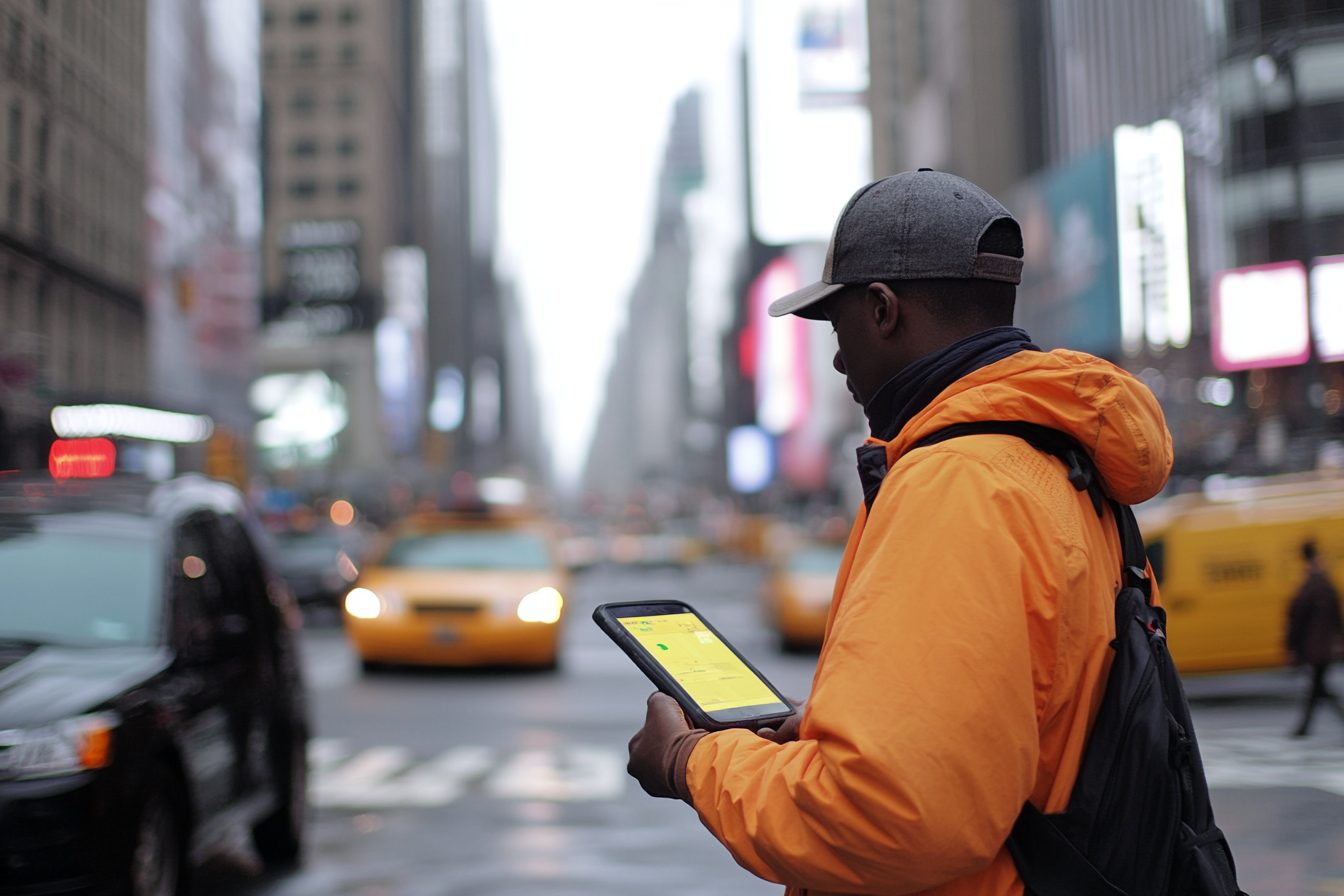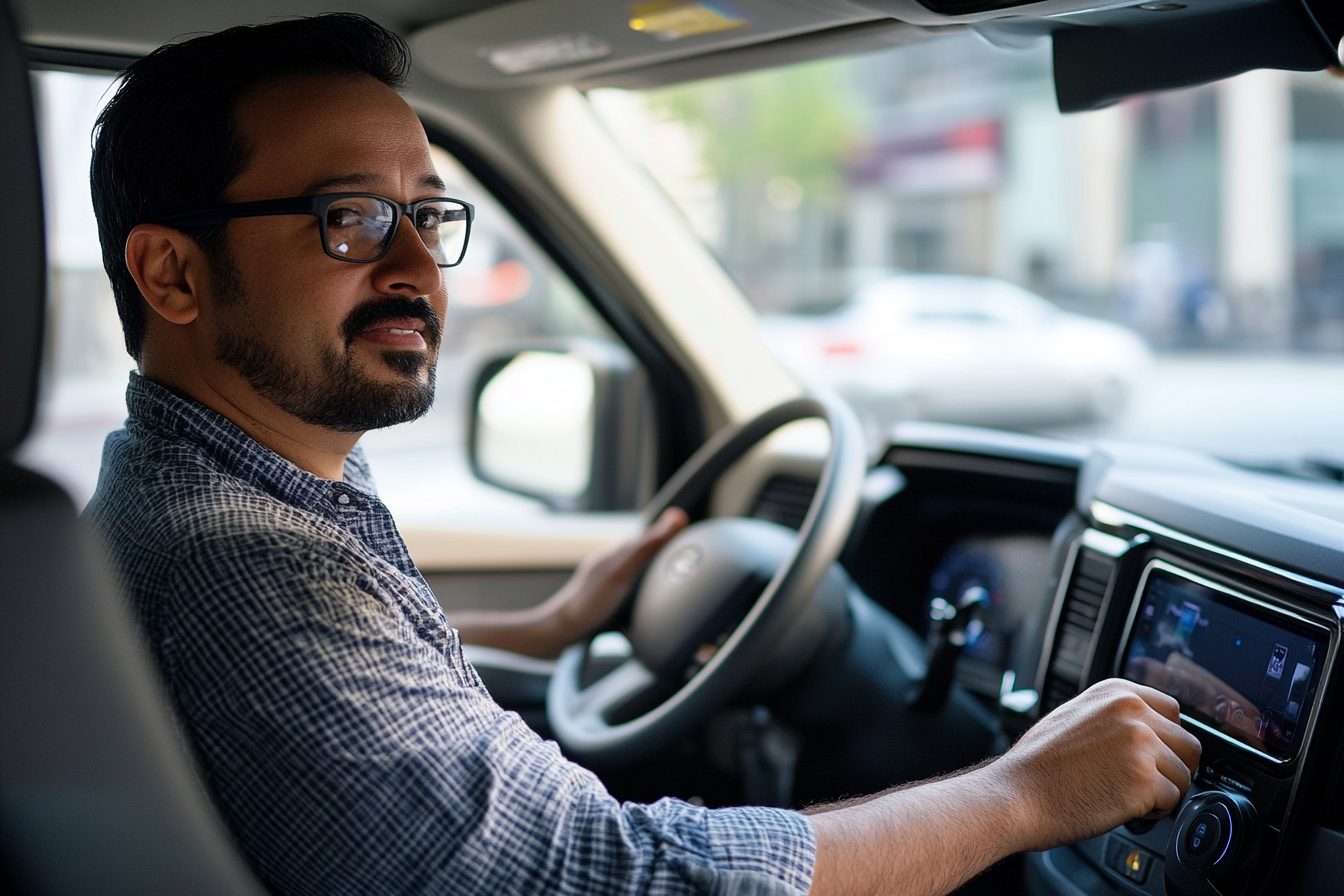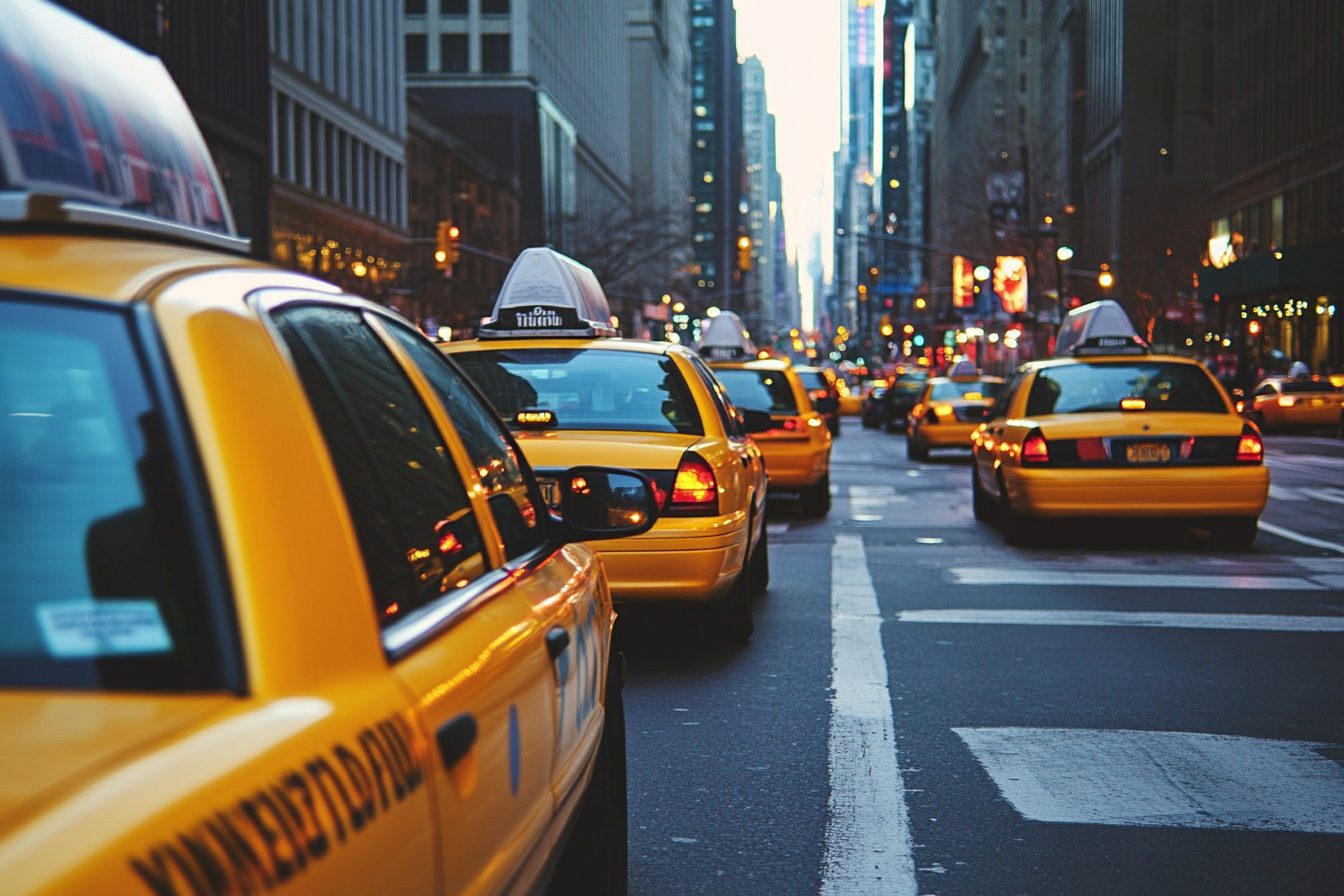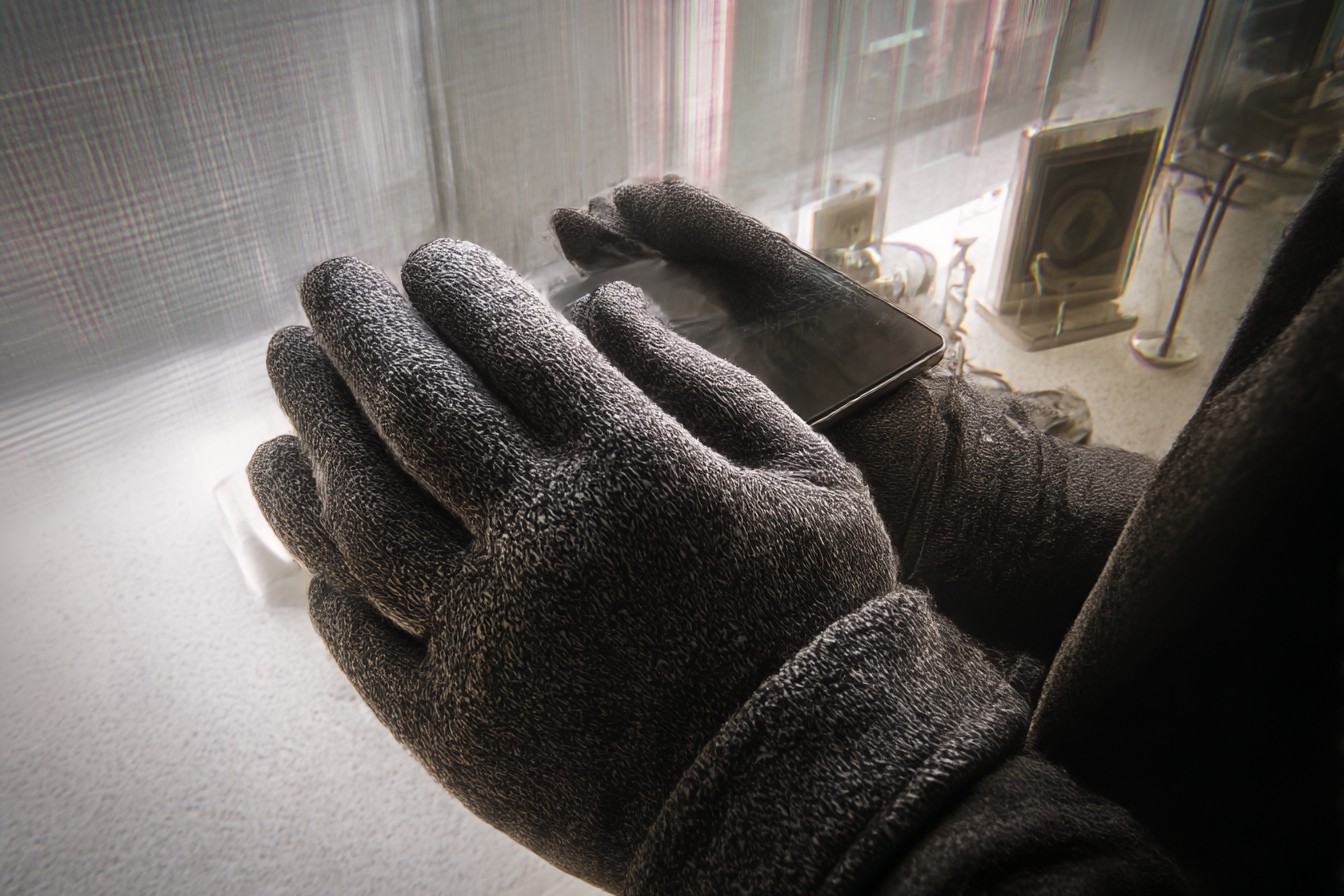I remember cabs. Real cabs, with their booming yellow color, and drivers who sat on their thrones like benevolent dictators ruling over this kingdom. With a sharp whistle, you could summon them. They would come teetering towards you.
It was impossible to describe them as perfect and they were a long shot away from that, but they were earnestly imperfect and hence bound to be perfect in my eyes. Next came the upheaval.
The apps that would share rides and claim they would transform transportation forever. No longer would you have to pace back and forth on street corners in the pouring rain. No longer would there be the need for desperate scrambling towards getting the right change because what you needed was nothing more than a way to go home.
Now, all it takes is the push of a button, and magically, a car miraculously appears. In marketing, we like to glorify it by calling it a miracle, but pushes one’s imagination a bit too far. Such glorified claims can only stem from ‘the kind of imagined imperative that can only be birthed from a deep well of venture capital’.
They can choose in their broad range of neglected areas the opportunity to structure arbitrary boundaries of service encapsulated by the absence of payment, branding it void of using medallions. I refer to that address as ride-share roulette because it embodies the absurdity of: “Where the only certainty is the day-to-day changes to the rules, and the house takes it all.” Last Thursday, I had a meeting across town.
I was dead on arrival to yet another mind-numbing meeting, ready to be introduced to new levels of trauma. This particular meeting was called to tackle problems that could easily be handled in a simple email that I could have received in a more remote region of the planet. Feeling benevolent, I opened my ride-share app an hour early anticipating a small window of forty-five minutes thinking, “Plenty of time.”
My phone notified me that, “the driver will arrive in 3 minutes”. I confirmed the radius of three minutes and found that every bit of my punctuality had been validated previously.
As I wearing my coat, I recollected my things and promptly moved towards the curb to await the car. Yes, I’ve become that person who just stands ready to be picked up by the ride. Three minutes ticked by the way a clock does in the world of time paradoxes. Three gave birth to five.
Ten minutes had flown by in what felt like mere seconds. Viewing the app I saw my driver, Jerome, doing what seemed to be a lap touring the entire neighborhood. His boundless freedom was shackled by traffic algorithms, utterly lost in a technologically constructed desert of terrible logic craftsmanship.
Lets just say the visual representation of town he was traveling while bounded by digital shackles mocked every essential component of existence was far from anything coherent or reasonable. I attempted to contact Jerome directly, nothing. The genius was smart enough to leave his number disconnected. I messaged him expecting at least some form of response from him through the app – the silent curse.
Respond even a millisecond later enr before me, merely circling the fully packed block devoid of humanity.
It’s similar to a shark that has not seen prey in years. A few minutes later the app refreshed and a new message was displayed: “Your driver is two minutes away.”
The “ride-share victim” is always an optimistic person. I straightened my body in the front seat of the car, and scanned the road for the last time in hopes that I could see the intersection where I needed to alight.
Two minutes now. No Jerome to be found. A new message appeared: “Jerome had to cancel. Finding you a new driver…”
Needless to say, he had given me far too much disappointment than I liked, well instructing me over the phone. But, in truth, he was telling me something that, at least to me, was unbelievable. We were going to end this with no polite goodbyes, and without even a courtesy call.
Ah, Jerome, that was so you. There’s a new driver expected in 8 minutes. 8 minutes!
How dare you! My meeting was now in jeopardy, all because Jerome couldn’t seem to manage the most rudimentary of postal routes and the “substitute” was quite clearly coming from a different part of town. Here, dear readers, is the most important principle of ride-share roulette: The expected arrival time is not a prediction – it’s a hope.
It is in a balance, too much and not enough at the same time. If you will, Schrodinger’s ETA. Eventually, my new driver, Melissa, showed up.
She arrived after a further seven minutes past her updated estimation which added up to over thirty minutes of wait time. At the point when I first booked the ride, the ETA was supposed to be 3 minutes. “Sorry for the delay,” was the first thing she said as I climbed into her pristine looking car.
“The app led me to the wrong location at first.”
I understood her. MElissa wasn’t the one who designed this system. She was merely another part of the dysfunctional machine. We were both caught in this mess, arranged by an algorithm that appeared to have been made with the sole intention of testing human limits on endurance.
Drivers are seldom the headache of the ride-share roulette. They are merely people working hard to survive in the gig economy, controlled by technology that, let us be honest, has gone wrong trying to guide us along. If you want to file a complaint, take it up with the tech bros and not the person behind the wheel.
It was hard to ignore that Melissa was not choosing the route I would have anticipated. It seemed as though she was determined to comply with the app’s instructions. Even in the construction zone that was almost entirely gridlocked, I could sense an overwhelming stubbornness fueled by the belief that the app was actually willing me through a supposed obstacle course.
She said, “this is faster, the app says so,” and I could see from her asymmetrical brow in the rearview mirror that I was meant to be impressed. She just didn’t have that brow in her head and neither did I. The application.
For now, the application. The passive aggressor working behind the scenes controlling our every move with some cosmic grasp that is far superior to that of the average person who has actually driven through these roads for ages. Rule three of ride-share roulette: The app overrides all sanity—whether we like it or not, it reigns supreme regardless of reasoning.
It recommended paths that could only exist in some other reality where that one major intersection isn’t being worked on or where cutting into that specific neighborhood at this time of day isn’t sport-like self-harm. If the application were unable to get us to the initial pickup point, what makes us believe they would know the so-called best routes to all the other destinations? The moment I entered the conference room, I was already late by 17 minutes, which caused me to further shift my chair while apologizing in a way only the truly late attendees can understand.
I appeared mildly out of shape and out of breath, as if everything was going wrong in the span of a few moments. My co-workers had a look of sympathy. It was clear to me that they had played ride-share roulette before.
It is clearly evident that not only you accept losing money and precious hours to a system which is not more efficient but instead isn’t even predictable. This system has been endorsed by all of us and has now become the foundation of modern society.
It can go both ways, since in this civilization they gladly accept being let down again and again in the name of providing us with a seamless life lived entirely onscreen. Ultimately, these devices epitomize technological advancement. But let me speculate.
You obtain a plethora of ride experiences, moments where achieving that jackpot makes every spin worthwhile. Every ride coming with its own set of perils, smooth rides are cleaned cars accompanied by friendly drivers. While a rough day includes the likes of what I went through last month… abhorrent vehicles remember the Pulp Fiction scene? In addition to overly enthusiastic lifers telling you their life stories.
If I recall correctly, the main character was navigating a world far removed from us only it features a dystopia where the backbone of civilization relies on machinery wages a one-sided war, but struggles to deliver on any expectation set. A reality parallel to surge pricing which represents the house claiming—as a rule of thumb—crushing your hopes of winning value.
If you’re trying to book a vehicle late into the working day, resign to the notion of paying exorbitant fees completely different from your base charge. On a device that detects your desperation, all prerequisite value is tossed out the window. Coming home on drizzles; the price only goes through the roof. That’s where the supposed affordable aid turns oppressor, bound to hiding your final ticket until you’ve locked in. Unanchored promises easily overlooked in the midst of watching your pocket’s onslaught. Rest assured I’m a planner, and stepped into such altercations.
For everything now, I permit all the time in the world, presuming my car takes its time. I make sure to check three or four different applications to see if all of their prices correlate before I make the payment. I know which of my neighborhood’s pickup spots are not likely to baffle the system—what’s the term I’m searching for?—perturbing enough for me not to be late getting my key returned to me.
Still, sometimes I do wish for a simpler time when I could just flag down a cab on the street, and it would pull up right next to me. It is true that the cab would likely have been more filthy, the driver would be nastier, and the payment more desperate, required cash, mental maths, and tips below ten percent. At least there was sincerity to the deal.
Paying for a taxi implied that you relied on a no-nonsense and straightforward kind of service. Handing out cash for driving in much the same way people pay for sandwiches. Both transactions appear equally sincere. Only a straightforward commitment: bring me to my destination and I’ll gladly pay you for your inconvenience.
Last week, I endured yet another maddening ride-share experience. I endlessly waited for a driver who was not able to see me, regardless of the fact that I was standing beneath a street lamp while actively trying to show him the exact place as I was speaking to him in a very dominant way. This incident made me wish for a time when someone could easily get a taxi by just standing on the street.
I took steps earlier this week to try and make that wish come true. Strangely, the vehicle had already been selected and I was just one click away from beginning the trip. To my disbelief, the driver had already selected my pre-determined location and also took a route past my usual pick up location.
They go out of their way not to discuss weather, so I was pleasantly surprised when we had a brief conversation. The end of the ride met all expectations I had set in regard to the cost. I truly felt as if I had travelled back in time where there was no technology, applications, and algorithms that ruled our lives.
Paying a bill felt exquisitely pleasurable after a long time because I could use real cash instead of spending it digitally. I won’t be too naive and say that good old taxis solve all our transport difficulties. They are very inefficient, for example, hard to locate when needed, and infuriating due to other people’s behavior like being rude or ill-mannered.
If I’m being honest, I feel it’s more adult to have to manage a system this clunky and fallible than one just as fallible, but, due to a glossy interface and deceptive assurances, feels less so. I still partake in ride-share roulette, but, unlike other people who claim there are Uber-etiquette guidelines, I understand this is a part of everyday life where not participating is more inconvenient than using the service.
I know this has many limitations and that it will, more often than not, indisputably disappoint. But in the grand scheme of everything, this is better than nothing and I still believe that to be true.
Nor is my condition so comfortable that I can do without it. Sometimes, when the gamble is exceptionally high, I simply can’t afford to lose, I will reach out for a taxi cab. It’s pleasant to imagine that a person can be trusted to deliver on at least one commitment: that of taking you to your destination.
My writer friend Evan Morgan likes to take it one step further and makes fun of this promise taxi cab drivers make but don’t always deliver. When addressing a taxi driver with a destination, he recommends viewing the scenario differently – that the taxi driver is actually making a stop along the way rather than doing drive without end, or else risk dire tedium. Until drivers are given proper instructions, we all have the option of participating in this ride-share roulette, where every tap on the app is a dollar sign.
More often than not, the technology firm waiting on the other end of the line, with its controlled surge pricing and harsh investors sitting level-headed, emerges victoriously. Even though we are all guaranteed a heightened heart rate, the one in need of hitting a jackpot is bound to lose. The game pulls the maximum value out of you while relying on sheer lack of predictability and four key components, the first being:
1. A carefully crafted pricing scheme calculates how much value you and your fellow passengers are likely to derive out of a ride or how useful the service will be us for you, then charges you for it.
2. The application you are using sends drivers to you, but for one reason or another there is a bounded pool of drivers available (and placed within an array of constraints, both physical and virtual, that this system imposes). 3.
Opting for the app makes you integrated into the infrastructure of the system. 4. With even several hundred structural relays in an area, the ride-hailing system is capable of providing you no guarantees, absolutely none.

